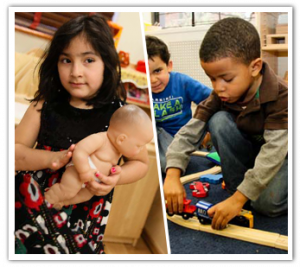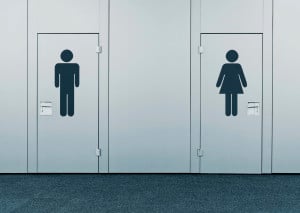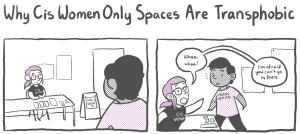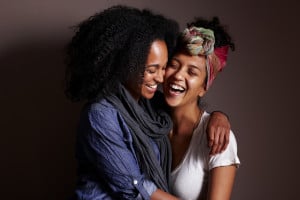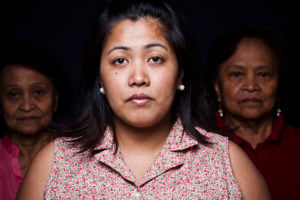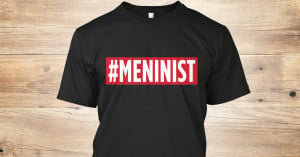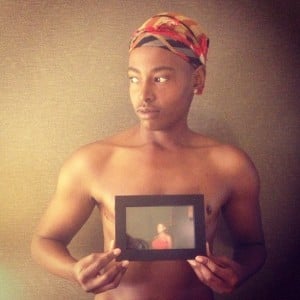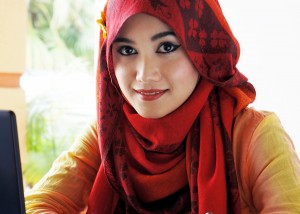
Source: Muslim Women Coach
Every few days, I get an inbox message, e-mail, or in-person question along the lines of “How do you reconcile your Muslim faith with feminism? You’re an adamant feminist, but always defend and uphold your Muslim identity. How?”
The question can deviate between the fine line of carefully polite and entitled savior.
But it’s common for many people to dismiss Muslim women as feminists. This, of course, in and of itself is not a feminist action.
As a nonhijabi, people often forget that I’m Muslim until they realize that I’m fasting or find me defending an ignorant Islamaphobic comment.
This shock is justified with “But you’re so feminist,” and the juxtaposition of this statement has always puzzled me because I find that Islam and feminism do, indeed, complement each other well.
As I became more comfortable identifying as a feminist, I became closer to my faith and became more public about being a Muslim and heavily involved in social justice.
But we witness an odd paradox in feminist circles where there is an evident and rightful love for Malala Yousafzai, but no questioning of the source for that love.
Why the love and admiration for Malala exists is largely because of the construct of saving Muslim women from Muslim men versus saving a woman from men who are extremists, like the FLDS. In Western society, these narratives of the Muslim woman who needs saving have become so pervasive that they are ingrained in our minds when we engage with Muslim women.
For many, due to media portrayals, a Muslim feminist may seem like a contradiction. Media portrayals of Muslim women regularly oppress, fetishize, and politicize our bodies, and it is important to know that these portrayals of the oppressed Muslim women are often in stark contrast to our lived realities.
So if you’re interested in supporting Muslim women in feminism – which, as self-proclaimed feminists, you should be – here are six tips that those attempting to act in solidarity can embrace to be better peers.
1. Remember: Not Every Muslim Is the Same
The monolith painted as “Muslim women” is largely a creation of narratives fed to us by media and perpetuated by ignorance.
Often, non-Muslims will believe that all Muslims practice in these monolithic ways. Just like other religions such as Christianity, Islam has multiple branches, and followers practice in their own respective ways.
You may know a Muslim or have watched a portrayal of a Muslim on television, but these depictions are a homogenous representation of Muslims – and therefore, inaccurate.
Additionally, just like any group, the Muslim community is nuanced. Applying uniform stereotypes is inappropriate. For instance, not all Muslim women wear the veil, and for those who do wear it, the ways they wear it can vary largely.
2. Please Don’t Try to ‘Save’ Muslim Women
Regularly in feminist circles – although there are central goals of feminism being equity for all – Muslim women are othered.
In many ways, liberated women of the West have “good intentions” in the fight for equity, but riddled throughout these intentions is the desire to save oppressed Muslim women without any depth or analysis.
These “good intentions” translate into paternalistic actions towards very independent and happy Muslim women.
Muslim women who identify as feminist – and even those who don’t – do not want or need to be saved, and it feeds into xenophobic rhetoric when assumptions are made about Muslim women needing saving from the choices we make and the religion we choose to practice.
3. Don’t Appropriate or Say You Understand
After a number of books and Malala being put in the spotlight over the last few years, I often find myself having my own people explained to me by women who have no idea what being Muslim means.
Often, they have read a book or watched a documentary about a select region and a specific group of women and suddenly fancy themselves experts on the Muslim identity.
Be mindful to give context and to understand that every individual is different. Frame any reflection of a media piece on Muslims acknowledging the specificity of it. As well, apply a critical lens when consuming information about Muslim women.
Begin to ask why an Orientalist gaze exists and how to deconstruct and unlearn your preconceived notions of Muslim women.
4. If a Muslim Refuses to Label Themselves Feminist, Don’t Force It
I’ve witnessed many non-Muslim women repeatedly push Muslim women who do not identify as feminists but exhibit feminist ideals to identify with the label.
For a multitude of reasons, people need to move away from this push. Beyond being paternalistic, it can be painful.
Many Muslim women have been marginalized and excluded by feminist movements due to false narratives of the oppressed Muslim woman.
As well, many non-Muslim women also opt out of the feminist label, and this must not be forgotten as Western feminism continues to “other” women who are non-white.
Many Muslim women are labeled as “not feminist” for behaving in ways we may find unfamiliar to ourselves in the West.
Additionally, if you pick up the Quran, it is evident that many values about equity are present throughout, and these parts make many Muslims feel that identifying as a Muslim Feminist can be redundant, especially when they have historically felt safer in Muslim spaces than feminist spaces.
By not forcing labels, you allow Muslim women to form their own identity at the intersection of their faith and feminism.
For many Muslim women – myself included – the intersection between being a Muslim and a feminist has been both tough and painful at times.
Understand that embodiment has privileged certain identities to have easier access to feminist spaces and visibility as feminists. There is a long history and present of exclusion of the Muslim woman in feminist spaces.
With that said, it is necessary to be cognizant of people’s point of entry into feminist discourse, especially in regards to aggressively policing Muslim women to identify explicitly as feminist.
5. A Hijab Can Be a Feminist Choice
So can any other choice of dress. Please respect that. And don’t assume that a man forced any woman to wear her hijab.
The hijab and other attire continues to be a hot talking point.
We argue about letting women have the autonomy to be topless in public, which I support, but wearing a hijab or abaya is oppression? Have people realized a lot of it is also for comfort and often a personal choice?
The choice to put on a hijab is Islamic when it is made by the woman wearing it. It is entirely un-Islamic when an individual is forced to wear it.
There are a number of misconceptions around the hijab and more recently a push towards very xenophobic/Islamaphobic policies in a number of countries, including my home Canada, to ban the hijab in certain areas.
Quebec touts itself as progressive and feminist, and many Quebec feminists will lament to me, for instance, on their fight not to change women’s last names after marriage.
But to me, as a Muslim woman, my family and many of my Muslim friends are part of generations of women who have not changed their last names. For us, this is not a new fight. As a Moroccan Muslim, none of the women in my family have changed their names, including great-great-great grandmothers (you get the point).
To us, this fight for a feminist policy is not one we needed, yet many women from Québec who want to ban the hijab believe it is a feminist choice to ban the scarf just as much as it was a feminist choice and deviation from social norms for them not to alter their last names.
Largely through dialogue and listening, it becomes evident that Muslim women share and attain many of the values women in the West still struggle to attain without stigma.
In addition to deconstructing myths about the hijab, observing from my own family and research in the form of focus groups has demonstrated that the popular narrative perpetuated in the West of “Muslim women in the West being forced to cover by Muslim men” is largely false in post-9/11 climate.
Through narrative and oral history groups, it was found that younger women in diaspora putting on the hijab had pushback from the men in their lives.
The men in their lives had fears that an Orientalist gaze would be applied to the young women adopting the hijab – and rightfully so.
Many men wanted their daughters or wives not to put on the scarf for fear of stigma or society assuming that the men in their lives were “backwards and close-minded, forcing the women to wear the veil.”
Women in these group interviews would interject saying, “I am not taking the hijab off for you. It is between me and Allah.”
For many young women in North America, this is the case. Hijab is an act of self-love and reclamation of identity in a post-9/11 society.
6. Avoid Ignorant Questions and Statements
One general, overarching rule: If it is something you would be offended to be asked, do not ask it of a Muslim woman.
If it is something you can Google, please do that before using a Muslim woman as a free educational tool.
Alternatively, frame your question in a non-ignorant or offensive way by asking versus stating, and by not asking a question littered with loaded assumptions about the Muslim woman or what aspects of Islam they may practice.
If you have or do, apologize and call yourself in when working with, supporting, or discussing Muslim women.
Challenge your acquaintances, friends, and family.
Create spaces for Muslim women to speak about Muslim women versus speaking for Muslim women. There are loads of empowered Muslim women; you just have to look beyond mainstream media depictions.
***
We need more traffic at the intersection where those working in solidarity and Muslim women meet – traffic (as in, discourse) that avoids othering of women that might not feel familiar or comfortable for the everyday feminist in the West.
We need to decolonize our understandings of what it means to be a feminist and de-center the whiteness of feminist spaces.
Orientalism has permeated mainstream feminist discourse that has regularly ignored intersectionality and belittled Muslim women.
Much of Western feminism has dictated to the Muslim woman what is best in regards to achieving gender equity. There is a lot about the feminist elements of Islam that are erased in the West that are very feminist in nature.
I will never be able to speak for all women; we are all unique in our beauty and intricacies.
With this in mind, every Muslim woman is different, and I can’t speak for all Muslim women either. But hopefully the above can help in creating safer spaces and dialogue for some.
[do_widget id=”text-101″]
Want to discuss this further? Visit our online forum and start a post!
Nashwa Khan identifies as South Asian/African Diaspora living and learning in Hamilton, Ontario. She calls Florida home. Over her undergraduate career in Hamilton, she served on a number of councils including the City’s Status of Women Committee, as Space Allocation Chair of McMaster’s Women and Gender Equity Network, and currently chairs the city’s Youth Advisory Council. Her work has been published in a variety of places including ThoughtCatalog, Guerilla Feminism, and the HuffingtonPostBlog. She is an avid storyteller and lover of narrative medicine. Feel free to tweet her @nashwakay.
Search our 3000+ articles!
Read our articles about:
Our online racial justice training
Used by hundreds of universities, non-profits, and businesses.
Click to learn more
Most Read Articles
- « Previous
- 1
- …
- 30
- 31
- 32






